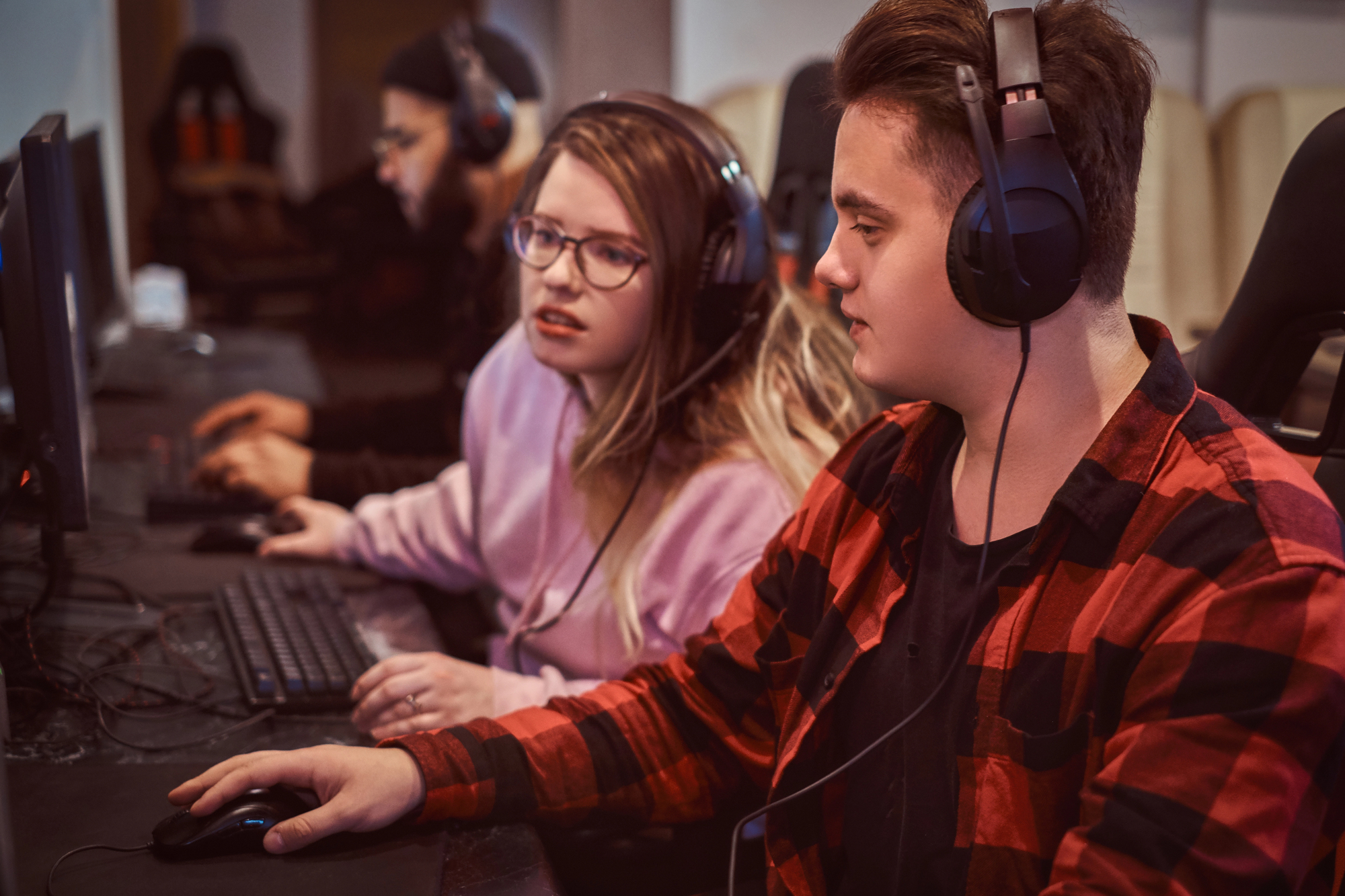Community management plays a vital role in shaping positive gaming spaces. It fosters an environment where players can connect, engage, and thrive together. Effective community management enhances player experiences, drives retention, and promotes inclusivity within gaming communities.
Building a strong gaming community requires active listening and responsive communication. Community managers need to understand the diverse needs of players and address their concerns promptly. This approach helps create a sense of belonging and encourages members to participate in shaping a healthy gaming environment.
Positive engagement is key to cultivating a vibrant gaming community. By implementing strategies that promote constructive interactions, community managers can minimize toxicity and create a space where players feel valued and respected. This contributes to a more enjoyable gaming experience for all participants.
Foundations of Community Management
Community management in gaming requires a deep understanding of players, clear guidelines, and effective communication channels. These elements form the bedrock of fostering positive gaming spaces.
Understanding the Audience
Successful community management starts with knowing the players. Game communities consist of diverse individuals with varied interests, skill levels, and motivations. Managers must recognize these differences to create inclusive environments.
Gathering player feedback through surveys, forums, and social media helps identify community needs and preferences. This data guides decisions on content, events, and engagement strategies.
Empathy plays a key role in connecting with players. By putting themselves in players’ shoes, managers can better address concerns and create experiences that resonate.
Establishing Community Guidelines
Clear rules set expectations for behavior and interactions within the gaming space. Guidelines should cover respectful communication, fair play, and content sharing.
Transparency in rule creation and enforcement builds trust. Managers can involve community members in developing guidelines to increase buy-in and adherence.
Consistent application of rules across all community members, regardless of status, maintains fairness. Regular reminders and visible posting of guidelines reinforce their importance.
Effective Communication and Feedback Loops
Open lines of communication between players and community managers are vital. Multiple channels like forums, social media, and in-game chat allow for diverse engagement options.
Active listening skills help managers understand player concerns and respond appropriately. Timely and thoughtful responses show players their input is valued.
Feedback loops enable continuous improvement. Managers should regularly solicit input on community initiatives and game updates, then act on that feedback to refine the player experience.
Building and Sustaining Engagement
Effective community management requires ongoing efforts to keep players involved and excited. Successful strategies focus on creating welcoming spaces, organizing captivating activities, and offering meaningful incentives.
Cultivating an Inclusive Environment
Creating a diverse and welcoming gaming community starts with clear guidelines and proactive moderation. Establishing and enforcing respectful behavior standards helps foster a positive atmosphere where all players feel valued. Encouraging players to share their experiences and perspectives can broaden the community’s appeal.
Offering multilingual support and resources caters to a global audience. Implementing accessibility features in games and community platforms allows more people to participate fully. Regular surveys and feedback sessions give players a voice in shaping the community’s direction.
Hosting Exciting Events and Challenges
Regular events keep the community active and give players reasons to return. Tournaments with prizes appeal to competitive gamers, while casual game nights build social connections. Themed events tied to holidays or game lore create shared experiences.
In-game challenges encourage players to explore new content or playstyles. These can range from speed runs to creative building contests. Collaborating with content creators on special events adds variety and draws new participants.
Community-driven events empower members to take leadership roles. Supporting player-organized tournaments or charity streams builds stronger connections within the community.
Reward Systems and Incentives
Recognizing player contributions motivates continued engagement. A tiered loyalty program with exclusive perks for long-term members shows appreciation for dedication. Highlighting community achievements through spotlights or leaderboards gives players goals to work toward.
In-game rewards like cosmetic items or titles for participating in events or reaching milestones provide tangible benefits. Offering early access to new features or content for active community members creates excitement.
Non-monetary rewards such as opportunities to interact with developers or influence game decisions can be highly valued. Creating a mentorship program where experienced players guide newcomers fosters a helpful community culture.
Moderation and Conflict Resolution
Effective moderation and conflict resolution are crucial for maintaining positive gaming communities. These practices help address toxicity, enforce rules, and create safe spaces for players.
Handling Toxicity and Harassment
Gaming communities can face issues with toxic behavior and harassment. Community managers should establish clear guidelines prohibiting abusive language, discrimination, and bullying. Swift action is key when violations occur. Temporary muting or banning repeat offenders may be necessary.
Educating players about respectful communication can help prevent issues. Some games implement automatic chat filters to catch common slurs or insults. Providing easy ways for players to report problems empowers the community to assist with moderation.
Regular town halls or feedback sessions allow community managers to hear concerns directly from players. This builds trust and helps identify emerging issues quickly.
Using Moderation Tools Effectively
Many games offer built-in moderation features that community managers can leverage. These may include:
- Chat filters to automatically block profanity or slurs
- Reporting systems for players to flag inappropriate content
- Temporary or permanent account suspensions
- IP bans for serious offenders
- Tools to review reported content and player histories
Training moderators on proper use of these tools is essential. Clear internal policies should guide moderator actions to maintain consistency.
Some games use AI-powered moderation to assist human moderators. This can help catch problematic content at scale. However, human oversight remains important for context and nuance.
Building a Safe and Supportive Space
Creating a welcoming environment goes beyond just enforcing rules. Community managers can foster positivity through:
- Highlighting good behavior and helpful players
- Organizing events that bring the community together
- Providing resources for mental health and conflict resolution
- Encouraging veteran players to mentor newcomers
Transparency about moderation practices builds trust. Regular community updates can explain recent actions and policy changes.
Diverse moderation teams help address varied perspectives. This allows for more nuanced handling of cultural differences or sensitive topics.
Advancing Through Technology and Partnerships
Community managers leverage cutting-edge technologies and form strategic alliances to create inclusive gaming environments. These advancements enhance player experiences and foster stronger connections within virtual communities.
Leveraging Social Media Platforms and Streaming
Social media and streaming services play a key role in building positive gaming spaces. Platforms like Twitch, Instagram, and Discord allow community managers to engage with players directly, share updates, and host events. Twitch streams create opportunities for real-time interaction between gamers and content creators, strengthening community bonds.
Community managers use these platforms to:
- Organize Q&A sessions with developers
- Showcase user-generated content
- Host tournaments and giveaways
- Address player concerns promptly
Reddit serves as a hub for game-specific discussions, where community managers can gather feedback and identify emerging trends. By maintaining an active presence across these channels, gaming companies stay connected with their player base and adapt to changing needs.
Incorporating AR, VR, and Other Tech Innovations
Augmented reality (AR) and virtual reality (VR) technologies are transforming gaming communities. These immersive experiences create new ways for players to interact and collaborate within virtual worlds.
AR apps allow players to:
- Engage in location-based gaming events
- Overlay digital elements onto real-world environments
- Participate in community challenges
VR platforms enable:
- Shared virtual spaces for socializing
- Immersive multiplayer experiences
- Virtual conventions and meetups
Community managers harness these technologies to design engaging activities that bring players together. They also work with developers to address potential issues like motion sickness or accessibility concerns, making sure these innovations are inclusive for all community members.
Fostering Collaborative Associations
Partnerships between gaming companies, esports organizations, and community groups strengthen the fabric of gaming communities. These collaborations create opportunities for cross-promotion, shared resources, and expanded player networks.
Collaborative efforts include:
- Joint charity streams with popular content creators
- Cross-game events that bring different player bases together
- Partnerships with accessibility advocates to improve game design
Esports tournaments serve as focal points for community engagement, with professional players inspiring amateur gamers. Community managers work with tournament organizers to create spectator experiences that celebrate player achievements and promote positive sportsmanship.
By fostering these partnerships, gaming companies extend their reach and create more diverse, welcoming spaces for all players.












